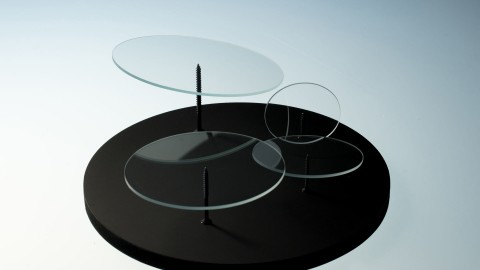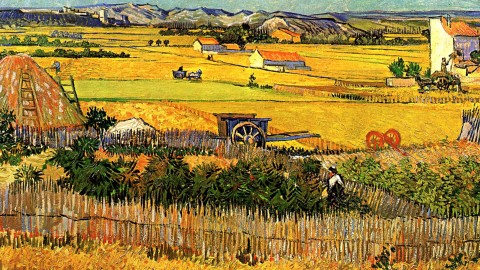Pancreatitis is inflammation in the pancreas. The pancreas is a long, flat gland that sits tucked behind the stomach in the upper abdomen. The pancreas produces enzymes that help digestion and hormones that help regulate the way your body processes sugar (glucose).
Pancreatitis can occur as acute pancreatitis – meaning it appears suddenly and lasts for days. Or pancreatitis can occur as chronic pancreatitis, which is pancreatitis that occurs over many years.
Symptoms
Signs and symptoms of pancreatitis may vary, depending on which type you experience.
Acute pancreatitis signs and symptoms include:
- Upper abdominal pain
- Abdominal pain that radiates to your back
- Abdominal pain that feels worse after eating
- Fever
- Rapid pulse
- Nausea
- Vomiting
- Tenderness when touching the abdomen
Chronic pancreatitis signs and symptoms include:
- Upper abdominal pain
- Losing weight without trying
- Oily, smelly stools (steatorrhea)
Causes
Pancreatitis occurs when digestive enzymes become activated while still in the pancreas, irritating the cells of your pancreas and causing inflammation. With repeated bouts of acute pancreatitis, damage to the pancreas can occur and lead to chronic pancreatitis. Scar tissue may form in the pancreas, causing loss of function.
A poorly functioning pancreas can cause digestion problems and diabetes.
Conditions that can lead to pancreatitis include:
- Abdominal surgery
- Alcoholism
- Certain medications
- Cystic fibrosis
- Gallstones
- High calcium levels in the blood (hypercalcemia), which may be caused by an overactive parathyroid gland (hyperparathyroidism)
- High triglyceride levels in the blood (hypertriglyceridemia)
- Infection
- Injury to the abdomen
- Obesity
- Pancreatic cancer
Risk Factors
Factors that increase your risk of pancreatitis include:
- Excessive alcohol consumption. Research shows that heavy alcohol users (people who consume four to five drinks a day) are at increased risk of pancreatitis.
- Cigarette smoking. Smokers are on average three times more likely to develop chronic pancreatitis, compared with nonsmokers. The good news is quitting smoking decreases your risk by about half
- Obesity. You’re more likely to get pancreatitis if you’re obese.
- Family history of pancreatitis. The role of genetics is becoming increasingly recognized in chronic pancreatitis. If you have family members with the condition, your odds increase – especially when combined with other risk factors.
Complications
Pancreatitis can cause serious complications, including:
- Pseudocyst. Acute pancreatitis can cause fluid and debris to collect in cyst like pockets in your pancreas. A large pseudocyst that ruptures can cause complications such as internal bleeding and infection.
- Infection. Acute pancreatitis can make your pancreas vulnerable to bacteria and infection. Pancreatic infections are serious and require intensive treatment, such as surgery to remove the infected tissue.
- Kidney failure. Acute pancreatitis may cause kidney failure, which can be treated with dialysis if the kidney failure is severe and persistent.
- Breathing problems. Acute pancreatitis can cause chemical changes in your body that affect your lung function, causing the level of oxygen in your blood to fall to dangerously low levels.
- Diabetes. Damage to insulin-producing cells in your pancreas from chronic pancreatitis can lead to diabetes, a disease that affects the way your body uses blood sugar.
- Malnutrition. Both acute and chronic pancreatitis can cause your pancreas to produce fewer of the enzymes that are needed to break down and process nutrients from the food you eat. This can lead to malnutrition, diarrhea and weight loss, even though you may be eating the same foods or the same amount of food.
- Pancreatic cancer. Long-standing inflammation in your pancreas caused by chronic pancreatitis is a risk factor for developing pancreatic cancer.
Homoeopathic Treatment
Arsenic Album Organic degenerations with great restlessness and despair; ulceration of duodenum, which, by extension, involves the pancreatic duct, perhaps the result of burns, of malignant disease, etc.; neuralgia of the coeliac plexus; stools undigested, containing fat.
Belladonna [Bell]Catarrh of the salivary ducts; peculiar odor from mouth, with but slightly coated tongue; thick, white mucus collects in mouth and throat, with constant inclination to hawk and swallow; constriction of abdomen around navel, inclination to hawk and swallow; constriction of abdomen around navel, as if a ball or lump would form.
Calcarea-ars [Calc-ar] Flat, unpleasant taste; saliva runs together in mouth like water, with tasteless belching; dull, pressing stitches below stomach; with cutting across abdomen; undigested stools with emaciation, palpitation and oppression of chest; albuminuria; bodily and mental relaxation.
Carbo-an [Carb-an] Indurated pancreas; profuse, tasteless, thin saliva of sweetish, putrid odor; sensation of coldness apparently rising from the abdomen into throat and mouth; eating causes distress and burning in the stomach; long-lasting nausea after meat; vomiting; oppression in epigastrium.
Carbo-veg [Carb-v] Raising of a watery fluid from stomach; foul taste and offensive odor from mouth; pains deep in between stomach and abdomen; distention of stomach and abdomen; aversion to meat and fat things; to milk, which causes flatulence; plainest food disagrees; burning, light-colored, foetid stools; praecordial anguish.
Conium [Con] ACUTE PANCREATITIS; sudden attacks of vomiting and diarrhoea at night; vomiting of a white substance consisting of saliva without any admixture of the contents of either stomach or bowels; trembling of abdomen.
Iodum [Iod] Great emaciation; hungry, anxious, if he cannot get food at the regular hour; eats enormously yet grows thin; pancreas enlarged; abdominal pulsations; soapy taste; FAT IN STOOLS; glands enlarged or atrophied; lungs affected; depressed and irritable; phthisis pulmonum; tabes mesenterica.
Tags: Pancreatitis And Homoeopathy










